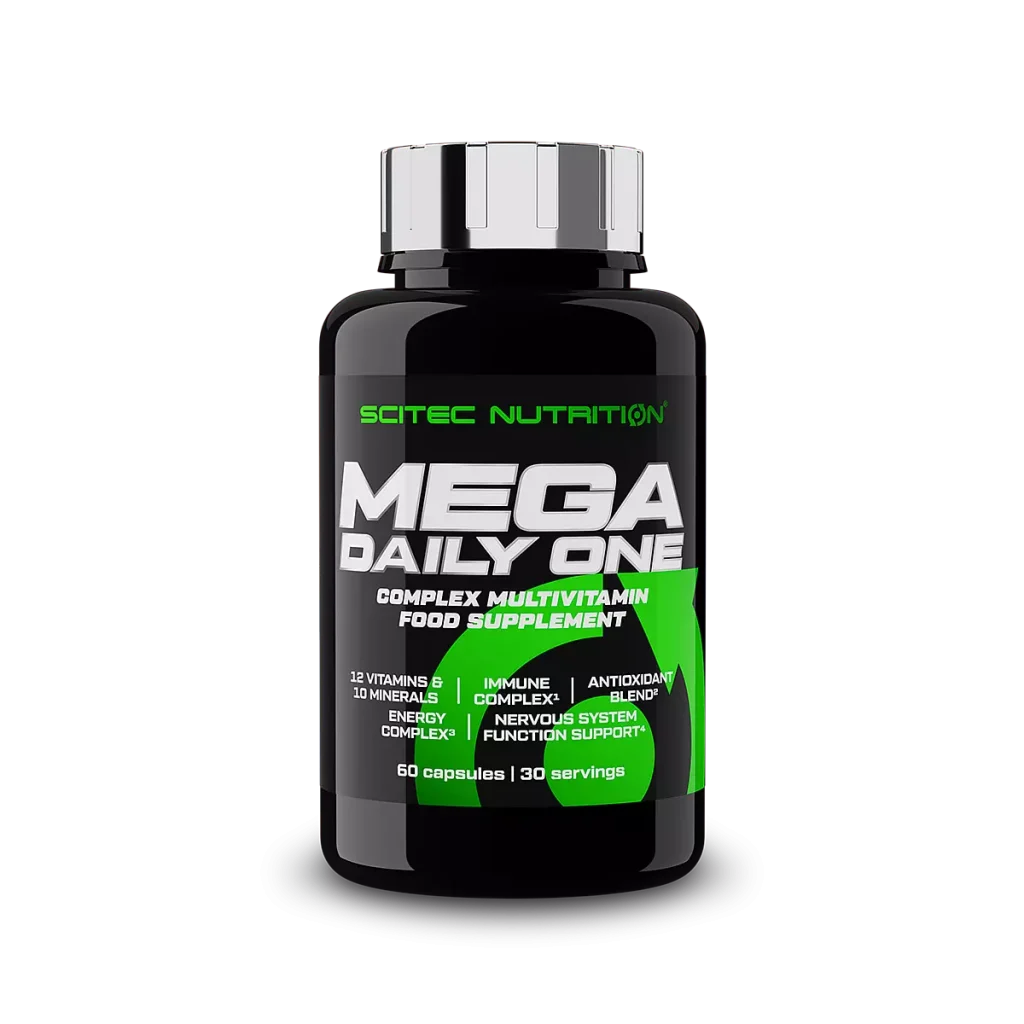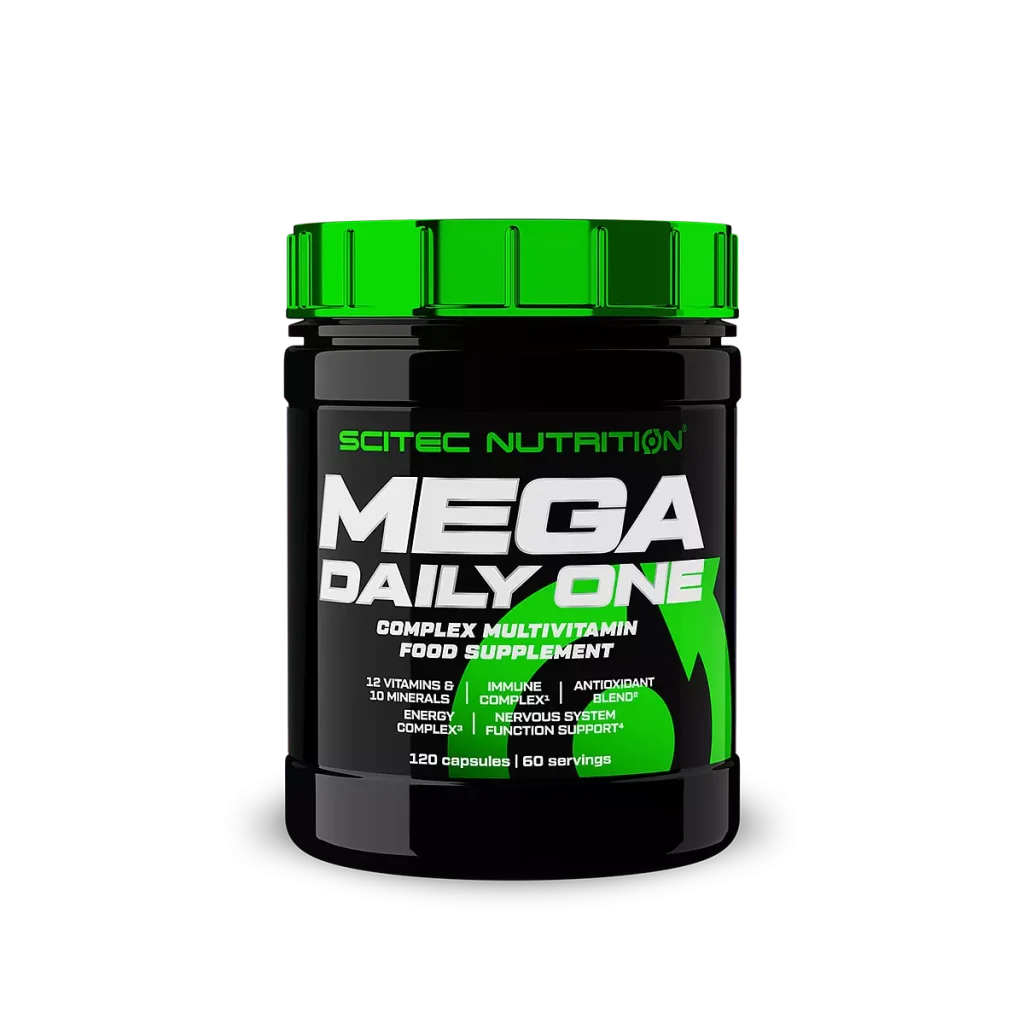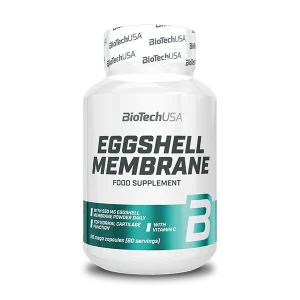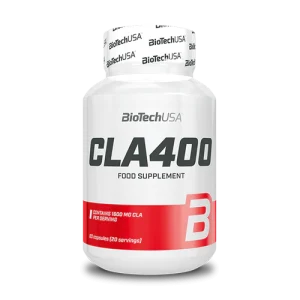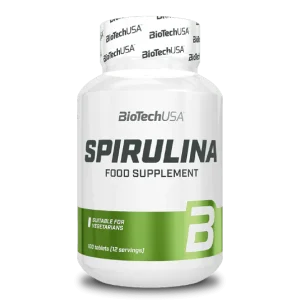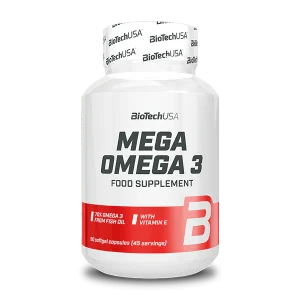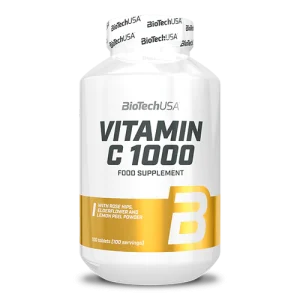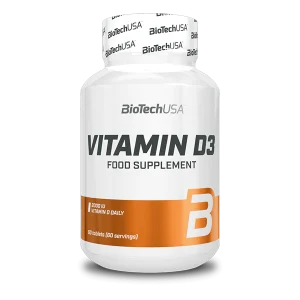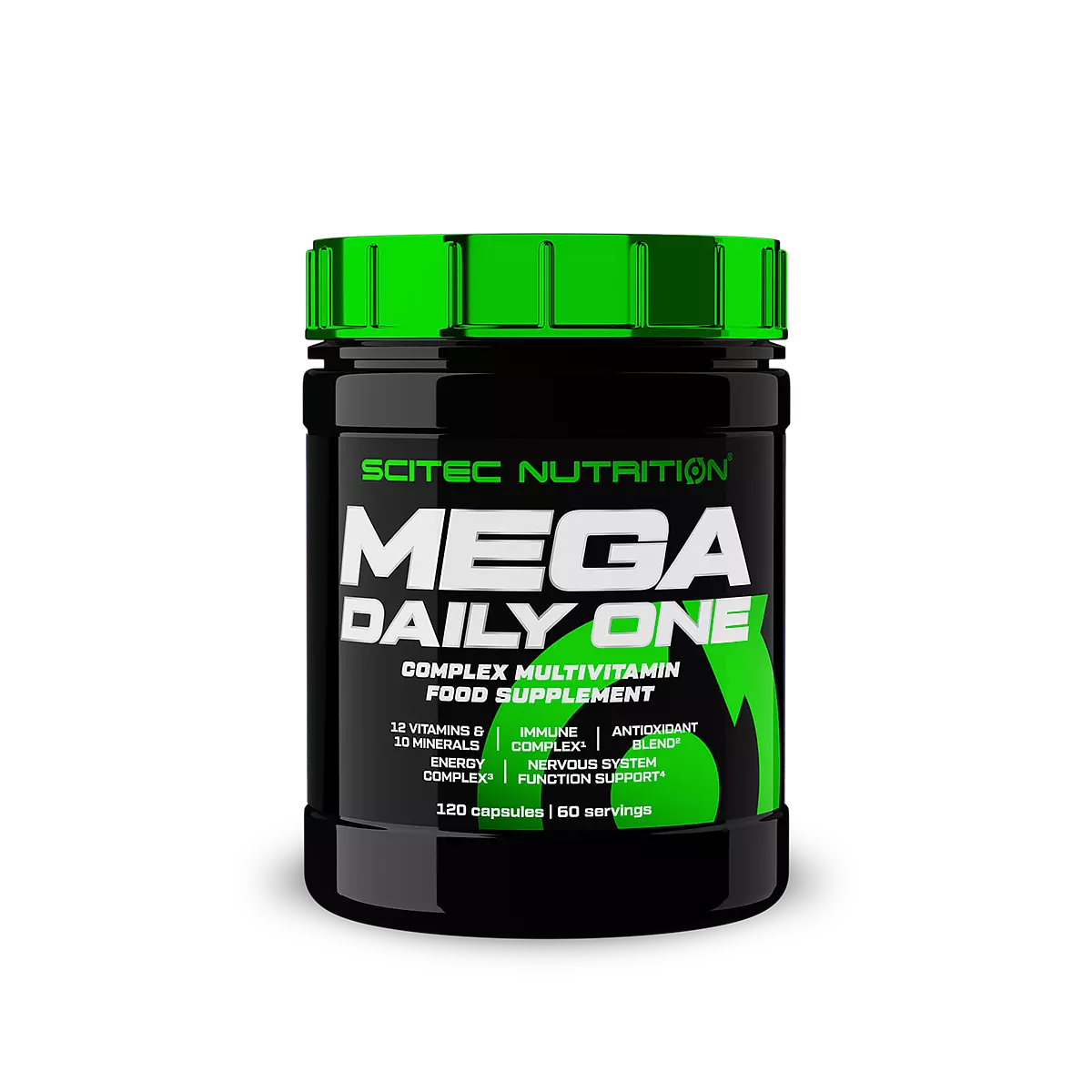
- Scitec Nutrition
- What Are Multivitamins?
- Advantages and Disadvantages of Taking Multivitamins
- Ingredients
- Vitamin A, a.k.a Retinol
- Vitamin B1, a.k.a Thiamin or Thiamine
- Vitamin B2, a.k.a Riboflavin
- Vitamin B3, a.k.a Niacin
- Vitamin B5, a.k.a Pantothenic Acid
- Vitamin B6, a.k.a Pyridoxine
- Vitamin B7, a.k.a Biotin
- Vitamin B9, a.k.a Folic Acid
- Vitamin B12, a.k.a Cobalamin
- Vitamin C, a.k.a Ascorbic Acid
- Vitamin D – Vitamin D2, a.k.a Ergocalciferol and Vitamin D3, a.k.a Cholecalciferol
- Vitamin E, a.k.a Tocopheryl Acetate
- Calcium
- Magnesium
- Iron
- Zinc
- Manganese
- Copper
- Iodine
- Selenium
- Molybdenum
- Rutin
- Hesperidin
- Choline
- Inositol
- Available Forms
- Reputable Websites Where You Can Buy Mega Daily One Multivitamins From.
Scitec Nutrition
Scitec Nutrition is a European company that specializes in the development and manufacturing of sports nutrition supplements. Here are some general points about Scitec Nutrition:
- Company Background:
- Scitec Nutrition is a Hungarian company that was founded in 1996. It has since become one of the leading brands in the sports nutrition industry.
- Product Range:
- Scitec Nutrition offers a wide range of sports supplements, including protein powders, pre-workout formulas, amino acids, weight gainers, vitamins, and other nutritional products. Their products are designed to support various fitness goals, such as muscle building, recovery, and overall performance enhancement.
- Quality Control:
- The company emphasizes the importance of quality control and uses advanced manufacturing processes to ensure the purity and effectiveness of their products. They often highlight the use of high-quality ingredients in their formulations.
- International Presence:
- While based in Hungary, Scitec Nutrition has a global presence, distributing its products to numerous countries. It is known for having a strong presence in the European sports nutrition market.
- Customer Reviews and Reputation:
- Like any company, Scitec Nutrition’s reputation can be assessed through customer reviews and feedback. Positive reviews often highlight the effectiveness of their products, while negative reviews may address issues such as taste preferences or individual reactions.
It’s important to note that for the most current and detailed information about Scitec Nutrition, I recommend checking their official website or contacting them directly.
What Are Multivitamins?
Multivitamins are dietary supplements that contain a combination of vitamins, minerals, and sometimes other nutrients. They are designed to provide a convenient way to ensure that individuals get a broad spectrum of essential nutrients that may be lacking in their diet. These supplements are available in various forms, including tablets, capsules, powders, and liquids.
The typical ingredients in multivitamins may include:
- Vitamins:
- These are organic compounds essential for various biochemical processes in the body. Examples include vitamin A, vitamin C, vitamin D, vitamin E, and the B-vitamins (such as B1, B2, B3, B6, B12, folate, and biotin).
- Minerals:
- These are inorganic elements necessary for various physiological functions. Common minerals found in multivitamins include calcium, magnesium, potassium, zinc, iron, and selenium.
- Other Nutrients:
- Some multivitamins may also include other beneficial compounds, such as antioxidants (e.g., beta-carotene), amino acids, or herbal extracts.
Multivitamins are not intended to replace a healthy and balanced diet, but they can be useful for individuals who may have difficulty meeting their nutritional needs through food alone. Certain populations, such as pregnant women, elderly individuals, vegetarians, or people with specific medical conditions, may benefit from multivitamin supplements. However, it’s important to note that excessive intake of certain vitamins and minerals can have adverse effects, so it’s crucial to follow recommended dosage guidelines and consult with a healthcare professional before starting any supplement regimen.
It’s always best to obtain nutrients from a varied and balanced diet, as whole foods provide a complex array of compounds that work together synergistically. If you have specific health concerns or dietary restrictions, it’s advisable to consult with a healthcare provider or a registered dietitian to determine whether a multivitamin or other supplements are appropriate for you.
Advantages and Disadvantages of Taking Multivitamins
Advantages of Taking Multivitamins:
- Nutrient Insurance:
- Multivitamins can provide a safety net by ensuring that individuals receive a baseline of essential vitamins and minerals, especially for those with dietary restrictions or inadequate intake.
- Convenience:
- They offer a convenient and easy way to obtain a broad spectrum of nutrients in a single dose, which can be beneficial for people with busy lifestyles or those who may struggle to consume a diverse range of foods.
- Specific Population Needs:
- Certain populations, such as pregnant women, the elderly, or individuals with specific medical conditions, may benefit from targeted multivitamin formulations designed to meet their unique nutritional needs.
- Health Support:
- Some studies suggest that certain populations, like older adults or pregnant women, may experience health benefits from multivitamin supplementation, such as improved immune function or reduced risk of birth defects.
Disadvantages of Taking Multivitamins:
- Overconsumption Risk:
- Excessive intake of certain vitamins and minerals can lead to adverse effects. For example, high doses of fat-soluble vitamins (A, D, E, K) can accumulate in the body and reach toxic levels.
- Incomplete Nutrient Profiles:
- Multivitamins may not provide all the nutrients found in a balanced diet, and the body may absorb and utilize nutrients differently from supplements compared to whole foods.
- Potential Interactions:
- Some vitamins and minerals can interact with medications or other supplements, potentially affecting their absorption or efficacy. It’s essential to consult with a healthcare professional to avoid potential interactions.
- No Substitute for a Healthy Diet:
- Multivitamins should not be viewed as a replacement for a well-balanced diet. Whole foods contain a variety of compounds that work together synergistically, and relying solely on supplements may neglect these interactions.
- Cost:
- Quality multivitamins can be relatively expensive, and individuals may end up spending money on supplements that may not be necessary if they already have a balanced and varied diet.
- Individual Variation:
- Nutrient requirements vary from person to person based on factors such as age, gender, health status, and lifestyle. A one-size-fits-all multivitamin may not address individualized needs.
In conclusion, while multivitamins can be beneficial for certain individuals, it’s crucial to approach their use with caution and under the guidance of a healthcare professional. A balanced and varied diet remains the best way to obtain essential nutrients for most people. If considering multivitamin supplementation, it’s important to choose a reputable product, follow recommended dosages, and prioritize obtaining nutrients from whole foods whenever possible.
Ingredients
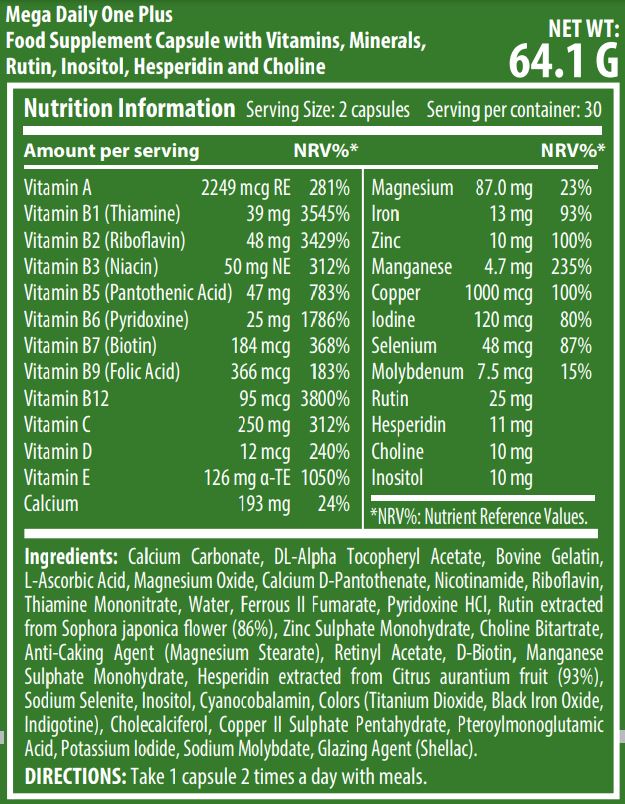
Vitamin A, a.k.a Retinol
Vitamin A is a fat-soluble vitamin essential for various physiological functions in the human body. It plays a crucial role in maintaining healthy vision, promoting immune system function, and supporting cell growth and differentiation.
There are two forms of vitamin A: retinoids, found in animal products, and carotenoids, present in fruits and vegetables. Retinol, an active form of vitamin A, is vital for vision, while carotenoids like beta-carotene act as precursors that the body can convert into active vitamin A.
Adequate vitamin A intake is crucial for preventing night blindness, supporting skin health, and bolstering the immune response. However, excessive intake can lead to toxicity, making it important to obtain the recommended daily allowance through a balanced diet rich in both animal and plant sources.
For more detailed information on vitamin A, please click here.
Vitamin B1, a.k.a Thiamin or Thiamine
Vitamin B1, also known as thiamine, is a crucial water-soluble vitamin that plays a fundamental role in energy metabolism. It is an essential coenzyme in the conversion of carbohydrates into energy, particularly in the citric acid cycle.
Thiamine also supports nerve function and helps maintain a healthy cardiovascular system. Common dietary sources of vitamin B1 include whole grains, fortified cereals, legumes, nuts, and pork. Deficiency in B1 can lead to beriberi, a condition characterized by fatigue, muscle weakness, and nerve damage. Alcohol consumption can increase the risk of thiamine deficiency.
Supplementation may be necessary for individuals with certain medical conditions or dietary restrictions, emphasizing the importance of maintaining adequate levels of this vital nutrient for overall health and well-being.
For more detailed information on vitamin B1, please click here.
Vitamin B2, a.k.a Riboflavin
Riboflavin, known as vitamin B2, is a water-soluble essential nutrient crucial for various bodily functions. It plays a key role in energy metabolism, assisting in the conversion of carbohydrates, fats, and proteins into energy.
Found in foods like dairy products, meat, and leafy greens, riboflavin supports healthy skin, eyes, and nerve functions. As a component of coenzymes FMN and FAD, it contributes to antioxidant defense, protecting cells from oxidative stress.
Deficiency can lead to ariboflavinosis, characterized by skin and eye issues. Riboflavin is vital for overall health, and a balanced diet ensures sufficient intake.
For more detailed information on vitamin B2, please click here.
Vitamin B3, a.k.a Niacin
Vitamin B3, or niacin, is a water-soluble vitamin essential for various metabolic processes. It exists in two forms: nicotinic acid and nicotinamide, both vital for the synthesis of coenzymes NAD and NADP, crucial in cellular energy production and DNA repair.
Found in both animal and plant sources, including meat, poultry, fish, whole grains, nuts, and legumes, niacin plays a fundamental role in energy metabolism, converting carbohydrates, fats, and proteins into usable energy. Severe niacin deficiency leads to pellagra, a rare condition characterized by dermatitis, diarrhea, and dementia.
While deficiency is uncommon in well-balanced diets, niacin supplements may be prescribed for specific medical conditions, with potential side effects requiring medical supervision, such as flushing and itching.
For more detailed information on vitamin B3, please click here.
Vitamin B5, a.k.a Pantothenic Acid
Vitamin B5, also known as pantothenic acid, is a water-soluble vitamin essential for various physiological functions in the body. It plays a crucial role in the synthesis of coenzyme A, a key molecule involved in the metabolism of carbohydrates, fats, and proteins. Additionally, vitamin B5 is integral to the production of acetylcholine, a neurotransmitter vital for proper nerve function.
This vitamin is widely distributed in both plant and animal foods, with sources including meat, dairy products, legumes, and whole grains. The body requires a continuous supply of vitamin B5, as it is not stored in large amounts. A deficiency in this vitamin can lead to symptoms such as fatigue, insomnia, and digestive issues.
Beyond its role in energy metabolism, vitamin B5 is also involved in the synthesis of hormones and cholesterol. Moreover, it contributes to the maintenance of healthy skin by promoting the formation of skin cells and assisting in wound healing. Adequate intake of vitamin B5 is crucial for overall health and well-being.
For more detailed information on vitamin B5, please click here.
Vitamin B6, a.k.a Pyridoxine
Vitamin B6, also known as pyridoxine, is a water-soluble vitamin essential for numerous biochemical processes in the body. It plays a crucial role in amino acid metabolism, supporting the synthesis of proteins, neurotransmitters, and hemoglobin.
Vitamin B6 is involved in converting stored carbohydrates into usable energy and participates in the formation of red blood cells. Additionally, it contributes to immune system function and helps regulate homocysteine levels, reducing the risk of cardiovascular disease.
Good dietary sources of B6 include poultry, fish, whole grains, nuts, seeds, and bananas.
A deficiency in Vitamin B6 can lead to symptoms such as anemia, dermatitis, and neurological issues. While deficiencies are uncommon, maintaining an adequate intake is vital for overall health.
For more detailed information on vitamin B6, please click here.
Vitamin B7, a.k.a Biotin
Vitamin B7, also known as biotin, is a water-soluble vitamin that plays a crucial role in various metabolic processes within the body. It is essential for the metabolism of carbohydrates, fats, and proteins, contributing to the production of energy.
Biotin is involved in the synthesis of fatty acids, amino acids, and glucose. It plays a vital role in maintaining healthy skin, hair, and nails.
Biotin is found in a variety of foods, including eggs, nuts, seeds, and certain vegetables. While biotin deficiency is rare, it can lead to symptoms such as hair loss and skin rash.
Biotin supplementation is sometimes recommended for individuals with specific health conditions, but it’s essential to consult with a healthcare professional before starting any supplementation.
For more detailed information on vitamin B7, please click here.
Vitamin B9, a.k.a Folic Acid
Vitamin B9, also known as folate or folic acid (synthetic form), is a water-soluble vitamin crucial for DNA synthesis, red blood cell formation, and neural tube development during pregnancy.
It supports normal cell division, amino acid metabolism, and contributes to cardiovascular health by regulating homocysteine levels.
Folate-rich foods include leafy greens, legumes, and citrus fruits. Adequate folate intake before and during pregnancy prevents neural tube defects in the fetus.
Folate deficiency can lead to anemia and is associated with increased risk of cardiovascular disease. Supplementation is recommended in specific cases, such as during pregnancy, but should be done under healthcare guidance to prevent potential adverse effects.
For more detailed information on vitamin B9, please click here.
Vitamin B12, a.k.a Cobalamin
Vitamin B12, also known as cobalamin, is a water-soluble vitamin crucial for various physiological processes. It plays a vital role in the formation of red blood cells, DNA synthesis, neurological function, and energy metabolism. B12 is primarily found in animal products such as meat, fish, eggs, and dairy.
Adequate B12 intake is essential for preventing pernicious anemia, a condition resulting from B12 deficiency. Individuals at risk of deficiency include those with certain gastrointestinal conditions, older adults, and strict vegetarians.
B12 absorption relies on intrinsic factor produced in the stomach. Deficiency symptoms include fatigue, neurological issues, and megaloblastic anemia.
B12 supplementation may be necessary for those with absorption issues or insufficient dietary intake. Regular monitoring and healthcare professional guidance are crucial for managing B12 levels.
For more detailed information on vitamin B12, please click here.
Vitamin C, a.k.a Ascorbic Acid
Vitamin C, or ascorbic acid, is a water-soluble vitamin essential for numerous physiological functions in the human body.
As a potent antioxidant, it helps protect cells from oxidative damage, supports the immune system, and promotes the synthesis of collagen—a vital protein for skin, blood vessels, and connective tissues.
Found abundantly in fruits and vegetables, particularly citrus fruits, strawberries, and bell peppers, vitamin C is crucial for overall health. Its role in enhancing iron absorption, contributing to wound healing, and combating infections underscores its significance.
While a deficiency can lead to scurvy, characterized by fatigue, swollen gums, and joint pain, maintaining a balanced diet rich in vitamin C sources is fundamental for optimal health and well-being.
For more detailed information on vitamin C, please click here.
Vitamin D – Vitamin D2, a.k.a Ergocalciferol and Vitamin D3, a.k.a Cholecalciferol
Vitamin D is also known as the “sunshine vitamin.” This nickname stems from the fact that the body can produce vitamin D when the skin is exposed to sunlight. There are two primary forms of vitamin D:
- Vitamin D2 (Ergocalciferol):
- Found in some plant-based foods and fungi.
- Vitamin D3 (Cholecalciferol):
- Synthesized in the skin when exposed to sunlight and also found in certain animal-based foods.
Vitamin D is essential for various bodily functions, including the regulation of calcium and phosphorus absorption, maintenance of bone health, and modulation of the immune system. It plays a crucial role in preventing conditions like rickets in children and osteoporosis in adults.
While sunlight exposure is a natural source of vitamin D, dietary sources and supplements are also important, especially in individuals with limited sun exposure or specific health conditions.
For more detailed information on Vitamin D, please click here.
Vitamin E, a.k.a Tocopheryl Acetate
Vitamin E, known as tocopheryl acetate in cosmetic and skincare formulations, is a fat-soluble antioxidant crucial for maintaining skin health.
Renowned for its protective properties, it combats free radicals generated by environmental factors like UV rays and pollution. Tocopheryl acetate is a common ingredient in skincare products due to its moisturizing effects, contributing to skin hydration and suppleness. Recognized for potential anti-aging benefits, it may reduce the appearance of wrinkles and promote natural healing processes. Widely used in creams, lotions, and serums, tocopheryl acetate is generally safe for topical application, though individuals with allergies should exercise caution.
Patch testing is recommended to ensure compatibility, and consultation with a healthcare professional is advisable for specific skincare concerns.
For more detailed information on Vitamin E, please click here.
Calcium
Calcium is a vital mineral crucial for the formation and maintenance of strong bones and teeth. It plays a fundamental role in various physiological processes, including muscle contraction, blood clotting, and nerve transmission.
Adequate calcium intake is essential for preventing osteoporosis and maintaining bone health throughout life.
Dairy products such as milk, yogurt, and cheese are rich sources of calcium, but it is also found in leafy green vegetables, fortified foods, and supplements. Proper absorption of calcium is facilitated by vitamin D.
Insufficient calcium intake can lead to health issues such as brittle bones and increased risk of fractures. Maintaining a balanced diet with sufficient calcium is imperative for overall well-being and skeletal integrity.
For more detailed information on Calcium, please click here.
Magnesium
Magnesium is an essential mineral with diverse roles in the human body. It plays a vital role in over 300 biochemical reactions, including energy production, muscle function, and DNA synthesis. Magnesium is crucial for maintaining normal heart rhythm, bone strength, and nerve function. Dietary sources of magnesium include green leafy vegetables, nuts, seeds, and whole grains.
While magnesium deficiency is rare, it can occur in individuals with certain medical conditions or inadequate dietary intake. Symptoms of deficiency may include muscle cramps, weakness, and abnormal heart rhythms.
Magnesium supplements are available to address deficiencies, but it’s essential to use them under medical supervision, as excessive magnesium intake can lead to adverse effects. Consulting healthcare professionals for personalized guidance is crucial for maintaining optimal magnesium levels and overall health.
For more detailed information on Magnesium, please click here.
Iron
Iron is an essential mineral vital for various physiological functions in the human body. It plays a crucial role in the formation of hemoglobin, the protein responsible for transporting oxygen in red blood cells.
Adequate iron levels are essential for preventing iron-deficiency anemia, characterized by fatigue, weakness, and impaired cognitive function. Iron is also involved in energy metabolism, immune function, and the synthesis of certain enzymes.
Dietary sources of iron include red meat, poultry, fish, legumes, and fortified cereals. Iron supplements are commonly prescribed to address iron deficiencies, but excessive iron intake can lead to toxicity.
Individuals at risk of deficiency or toxicity should seek guidance from healthcare professionals to ensure optimal iron levels for overall health.
For more detailed information on Iron, please click here.
Zinc
Zinc, an essential mineral, holds diverse significance in medicine, contributing to critical physiological processes. It is a pivotal element in immune function, influencing the body’s defense mechanisms against infections. Additionally, zinc plays a key role in wound healing, aiding in the regeneration of tissues, and is an essential cofactor for enzymes involved in DNA synthesis, cell division, and protein metabolism. The multifaceted involvement of zinc in these fundamental processes underscores its importance in supporting overall health and addressing specific medical needs.
In the realm of medicine, zinc supplementation is employed to treat deficiencies, enhance immune function, and promote the healing of wounds, particularly in dermatological conditions. Its potential antiviral properties have also been a subject of exploration. However, it’s crucial to maintain a balanced approach to zinc intake, as excessive amounts can lead to adverse effects. Understanding the nuanced role of zinc in medicine allows healthcare professionals to leverage its therapeutic benefits while avoiding potential risks associated with imbalances.
For more detailed information on Zinc, please click here.
Manganese
Manganese is an essential trace element that plays a crucial role in various physiological processes within the human body.
It serves as a cofactor for numerous enzymes involved in metabolism, bone formation, and antioxidant defense. Manganese contributes to the proper development and maintenance of connective tissues, blood clotting factors, and sex hormones.
While manganese deficiency is rare, excessive exposure to manganese, particularly through occupational settings, can lead to neurological issues known as manganism. In medicine, manganese is primarily recognized for its role as a cofactor in enzyme systems, supporting overall health and contributing to the body’s ability to maintain essential functions. As with any micronutrient, maintaining a balanced intake is essential for optimal health.
For more detailed information on Manganese, please click here.
Copper
In medicine, copper plays a crucial role as an essential trace element necessary for various physiological functions in the human body.
It contributes to the formation of connective tissues, supports the immune system, and aids in the absorption of iron. Copper is an integral component of enzymes involved in energy production, antioxidant defense, and neurotransmitter synthesis.
While copper deficiency is rare, excessive copper intake can lead to toxicity and adverse health effects. Medicinal applications involve the use of copper-infused materials for wound healing and antimicrobial purposes. Copper bracelets, for example, are thought by some to alleviate joint pain, although scientific evidence supporting these claims is limited.
The delicate balance of copper in the body underscores its significance in maintaining overall health and highlights its intersection between medicine and material science.
For more detailed information on Copper, please click here.
Iodine
Iodine is an essential element crucial for the synthesis of thyroid hormones, which play a fundamental role in regulating metabolism and supporting overall growth and development.
While iodine deficiency can lead to thyroid disorders and developmental issues, excess iodine can also have adverse effects. Iodine is commonly administered as iodine-based medications or iodized salt to prevent deficiencies.
Radioactive iodine is used in medical treatments, particularly for thyroid disorders and certain cancers. Iodine contrasts, such as iodine-based dyes, are utilized in medical imaging procedures like CT scans.
Maintaining a balance in iodine intake is critical for optimal health, and healthcare professionals carefully prescribe iodine-containing medications or treatments based on individual health needs.
For more detailed information on Iodine, please click here.
Selenium
Selenium is an essential trace element with crucial roles in human health. Functioning primarily as a component of selenoproteins, selenium contributes to antioxidant defense mechanisms, protecting cells from oxidative stress. It is integral for normal thyroid function and immune system modulation. Adequate selenium intake is associated with a lower risk of certain cancers, particularly in regions with low selenium soil content. Conversely, selenium deficiency can lead to conditions such as Keshan disease and Kashin-Beck disease, affecting the heart and joints, respectively. While selenium is vital for health, excessive intake can also be harmful. Balancing selenium levels through a diverse diet is essential for optimal well-being.
For more detailed information on Selenium, please click here.
Molybdenum
Molybdenum is an essential trace element that plays a vital role in human health. Acting as a cofactor for enzymes, particularly those involved in sulfur metabolism, molybdenum contributes to the body’s ability to detoxify harmful substances and metabolize certain amino acids. Molybdenum-dependent enzymes are crucial for the conversion of sulfite to sulfate, a process integral to cellular function.
While molybdenum deficiency is rare, it can lead to severe neurological and developmental issues. Molybdenum-rich foods, including legumes, grains, and leafy vegetables, are essential for maintaining optimal levels. Beyond its significance in human biology, molybdenum’s therapeutic applications are limited, and its main focus remains on supporting fundamental biochemical processes.
For more detailed information on Molybdenum, please click here.
Rutin
Rutin is a bioflavonoid found in fruits, vegetables, and grains, with high concentrations in foods like apples, citrus fruits, and buckwheat. Its chemical structure consists of quercetin and rutinose, imparting antioxidant and anti-inflammatory properties. Rutin is associated with potential cardiovascular benefits, promoting blood vessel health and reducing oxidative stress.
It is available in dietary supplements, often in combination with other bioflavonoids. While rutin is generally considered safe in normal dietary amounts, caution is advised with high-dose supplements due to potential side effects like stomach upset. Ongoing research explores its immune-modulating effects and broader health applications, emphasizing the importance of a balanced diet for optimal nutrient intake.
For more detailed information on Rutin, please click here.
Hesperidin
Hesperidin, a flavonoid abundantly present in citrus fruits like oranges, lemons, and grapefruits, is celebrated for its potential health-promoting properties. As a powerful antioxidant, hesperidin helps combat oxidative stress, protecting cells from damage caused by free radicals. Its anti-inflammatory attributes are of particular interest, as hesperidin has demonstrated the ability to modulate inflammatory pathways, suggesting potential benefits for conditions involving inflammation.
Research indicates that hesperidin may play a role in cardiovascular health by promoting the strength and flexibility of blood vessels. Studies suggest that it might contribute to reducing blood pressure and improving lipid profiles. Additionally, hesperidin has been explored for its immune-modulating effects, which could have implications for immune system support. While hesperidin is naturally obtained through citrus consumption, its concentrated form is also available in supplement form. Individuals considering hesperidin supplements are advised to consult with healthcare professionals, especially those with existing health conditions or taking medications, to ensure safe and appropriate use.
For more detailed information on Hesperidin, please click here.
Choline
Choline, classified as an essential nutrient, plays a multifaceted role in maintaining optimal health. Abundant in foods such as eggs, meat, and certain vegetables, choline is a vital component in the synthesis of phosphatidylcholine, a major constituent of cell membranes. Its involvement in cell membrane structure ensures the integrity and fluidity of cellular membranes, influencing overall cellular function.
Choline is also a precursor to acetylcholine, a neurotransmitter critical for various cognitive functions, including memory and muscle control. Beyond its role in neurotransmitter synthesis, choline participates in methylation reactions, contributing to the production of molecules essential for liver function and DNA methylation. Adequate choline intake is particularly crucial during pregnancy, supporting proper fetal brain development. Despite its importance, many individuals do not meet recommended choline intake levels, emphasizing the need for awareness and conscious dietary choices or supplementation to ensure optimal health.
For more detailed information on Choline, please click here.
Inositol
Inositol is a naturally occurring compound that belongs to the vitamin B complex, though it is not officially classified as a vitamin. It is integral to various physiological processes, playing a crucial role in cell signaling, neurotransmitter function, and lipid metabolism. Often referred to as “vitamin B8,” inositol is found in foods like fruits, beans, grains, and nuts, and the body can also synthesize it from glucose. Its presence in cell membranes contributes to their structural integrity, aiding in cell communication and overall cell function.
Research suggests that inositol may have potential therapeutic applications, particularly in mental health. It is recognized for its involvement in the regulation of mood and neurotransmitter activity, and supplements like myo-inositol have been explored for conditions such as anxiety, depression, and polycystic ovary syndrome (PCOS). While inositol is generally considered safe, and dietary sources are abundant, individuals considering supplementation should consult with healthcare professionals to ensure appropriate dosages and assess its potential benefits for specific health concerns.
For more detailed information on Inositol, please click here.
Available Forms
Megadaily One multivitamins by Scitec Nutrition are available in two sizes: a small bottle with 60 capsules and a larger bottle with 120 capsules.
